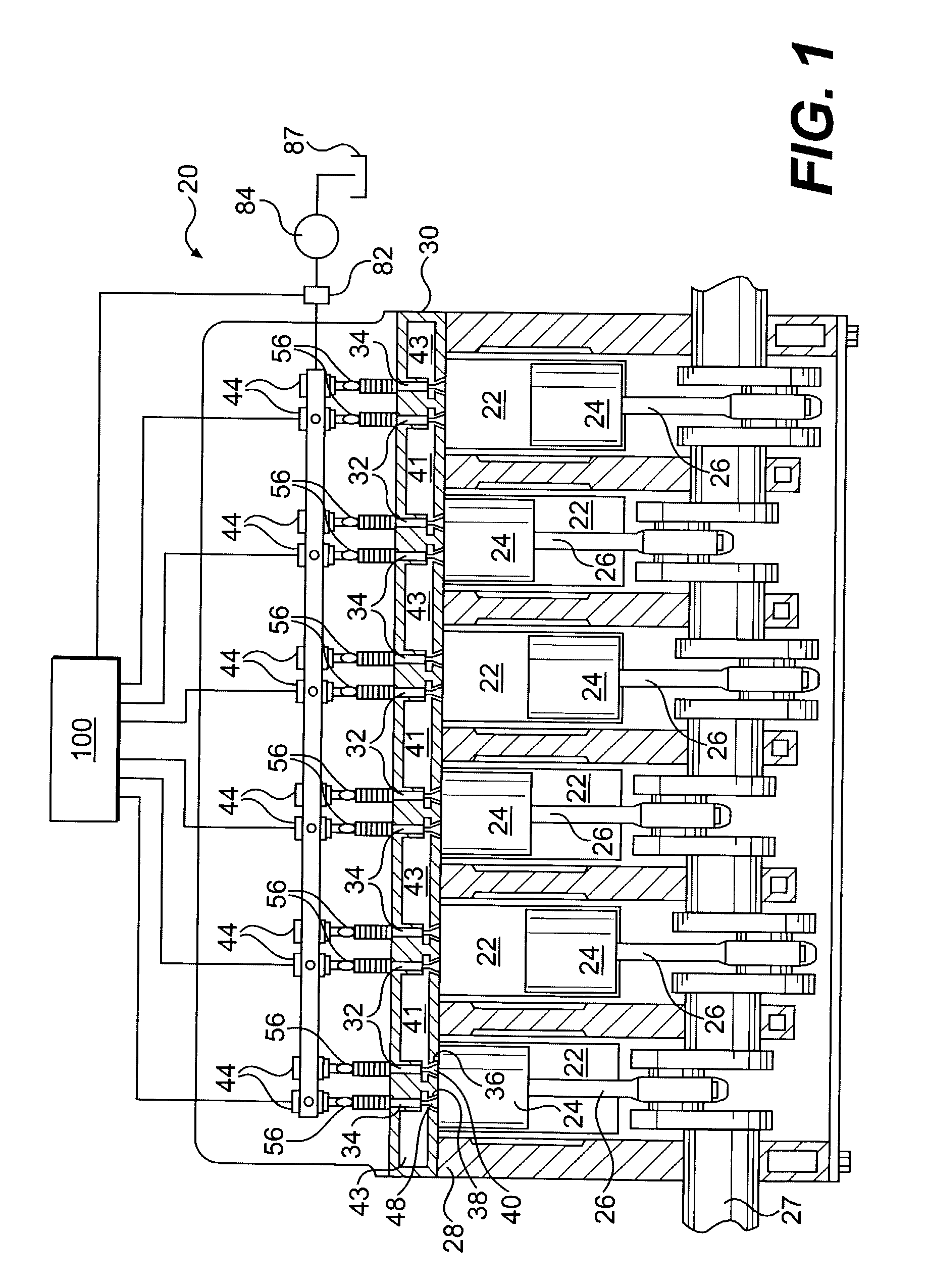Engine valve actuation system
a technology of engine valves and actuators, applied in the direction of machines/engines, non-mechanical valves, electrical control, etc., can solve the problems of reducing the overall efficiency of the engine, generating undesirable emissions, and eventually exhausted undesirable emissions to the environmen
- Summary
- Abstract
- Description
- Claims
- Application Information
AI Technical Summary
Benefits of technology
Problems solved by technology
Method used
Image
Examples
Embodiment Construction
[0022]An exemplary embodiment of an internal combustion engine 20 is illustrated in FIG. 1. For the purposes of the present disclosure, engine 20 is depicted and described as a four stroke diesel engine. One skilled in the art will recognize, however, that engine 20 may be any other type of internal combustion engine, such as, for example, a gasoline or natural gas engine.
[0023]As illustrated in FIG. 1, engine 20 includes an engine block 28 that defines a plurality of cylinders 22. A piston 24 is slidably disposed within each cylinder 22. In the illustrated embodiment, engine 20 includes six cylinders 22 and six associated pistons 24. One skilled in the art will readily recognize that engine 20 may include a greater or lesser number of pistons 24 and that pistons 24 may be disposed in an “in-line” configuration, a “V” configuration, or any other conventional configuration.
[0024]As also shown in FIG. 1, engine 20 includes a crankshaft 27 that is rotatably disposed within engine block...
PUM
 Login to View More
Login to View More Abstract
Description
Claims
Application Information
 Login to View More
Login to View More - R&D
- Intellectual Property
- Life Sciences
- Materials
- Tech Scout
- Unparalleled Data Quality
- Higher Quality Content
- 60% Fewer Hallucinations
Browse by: Latest US Patents, China's latest patents, Technical Efficacy Thesaurus, Application Domain, Technology Topic, Popular Technical Reports.
© 2025 PatSnap. All rights reserved.Legal|Privacy policy|Modern Slavery Act Transparency Statement|Sitemap|About US| Contact US: help@patsnap.com



